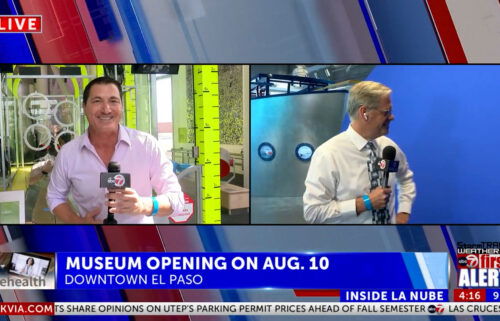American Lung Association calls new vaping law “meaningless” due to enforcement loopholes
Click here for updates on this story
CLEVELAND, OH (WEWS) — The Ohio chapter of the American Lung Association is offering harsh criticism of Ohio’s new 21 and over vaping law after a 5 On Your Side Investigation exposed serious issues with enforcement.
“Tobacco 21 is such a good law if it’s implemented correctly,” said Kimberly Covey, Executive Director of the American Lung Association in Ohio.
“But, it’s meaningless unless you implement it correctly. This is really, I hate to say it, a meaningless law.”
Watch News 5 tonight at 11 p.m: Our 5 On Your Side Investigation “Up in Smoke” puts local vape shops to the test to see if they will sell to an underage buyer.
On October 17, Ohio banned the sale of all tobacco-related products, including vape pens and cartridges to consumers under 21-years-old.
The move comes while the Centers for Disease Control and Prevention confirmed 37 deaths related to vaping so far this year.
To curb teen use, Ohio Governor Mike DeWine (R) signed “Tobacco 21” regulations into law this summer.
The law raised the age to purchase cigarettes, tobacco-related products, and nicotine products, like e-cigarettes, vaping pens, vape cartridges and e-juice from 18 to 21.
But 5 On Your Side Investigators found enforcement of Ohio’s new rules is minimal at best due to some serious loopholes.
The Food and Drug Administration does conduct compliance checks at vape shops.
However, we found it only tested a handful of Ohio vape shops last year. Also, the federal age to purchase vape products is still 18, so the feds cannot enforce sales made to anyone older.
The Ohio Investigative Unit, which does compliance checks for the Ohio Department of Health, can only cite stores with a liquor permit, which excludes most vape shops.
The Cuyahoga County Board of Health is collaborating with several municipalities that enacted local ordinances. However, so far, they conducted just one compliance check at a vape shop.
Covey said, like alcohol, stores that sell vape products should be licensed. Then, if they fail compliance checks, the businesses would be in jeopardy of losing their license.
“If there’s no risk to the retailer, there’s no point in having this law,” she said.
A spokesperson for Ohio Governor Mike DeWine said the governor is committed to curbing vaping among Ohio’s youth and interested in finding ways to bolster enforcement action in the state.
Please note: This content carries a strict local market embargo. If you share the same market as the contributor of this article, you may not use it on any platform.




